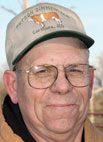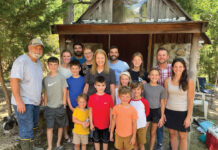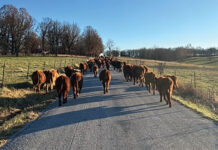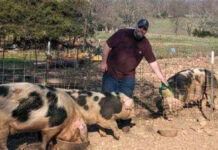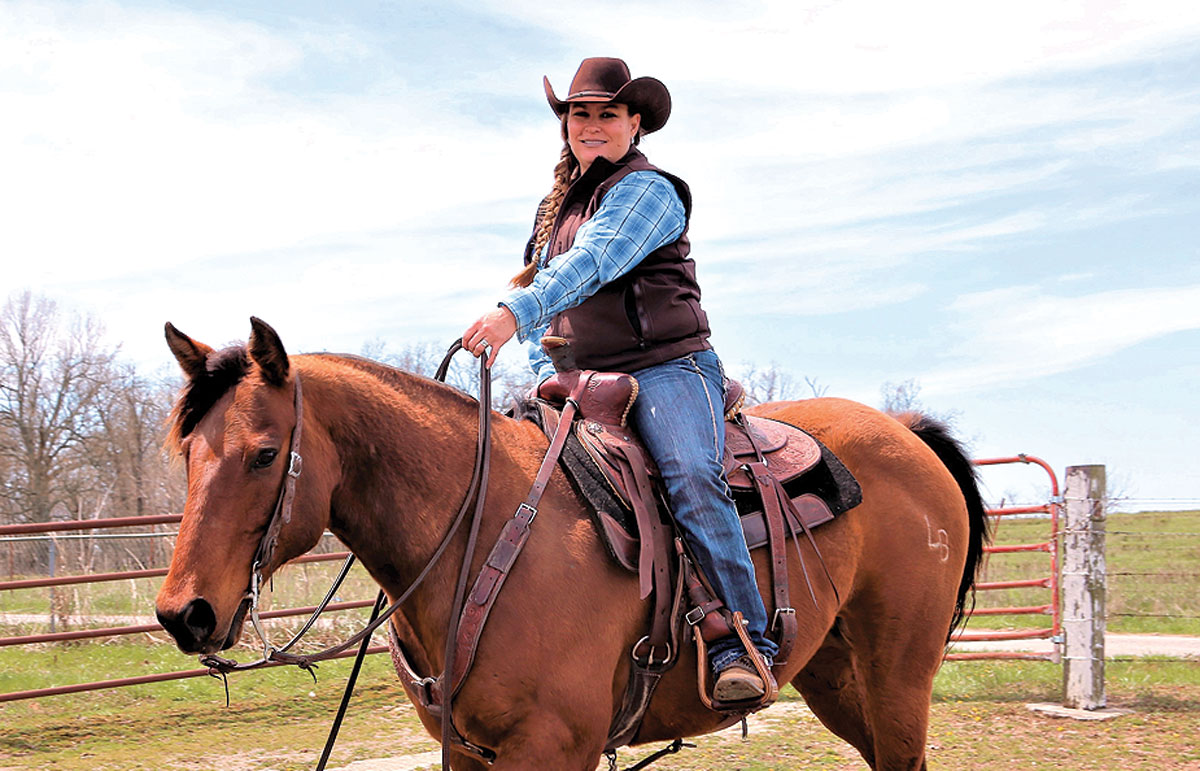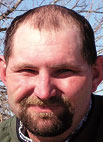
You want to be a successful farmer?
Then you need a good education, says Wayne Hutson, a cow/calf producer near Carthage, Mo. But, he isn’t necessarily talking about book learning or a college degree. “You need to keep an open mind and be willing to learn something,” Wayne said. “You can learn something everyday.”
Wayne got much of his farming education from his father, on the family’s Grade A dairy farm in northwest Kansas. His learning experiences were not so much in the classroom, as they were in the barn and fields.
It was a good education – one that has kept Wayne in the farming business ever since. He partnered with his dad in the dairy for many years before he and his wife, Judy, decided they were tired of cold Kansas winters and headed to Missouri in 1982. The move included a conscious downsizing to a smaller farm, and both found off-farm jobs – Wayne with Butterball in Carthage and Judy with the state’s division of social services.
“It started out as a hobby farm,” Wayne said of their new place. But then their children, Kaylea and William, got involved in 4-H and showing dairy cattle, and soon the Hutson family was back in the dairy business. “If you’re going to milk two, you might as well milk five,” Wayne said. “And if you’re going to milk five, you might as well milk 20.”
The Hutsons’ herd grew to about 45 cows, still well under the more than 100 they milked in Kansas, and they stayed in the dairy business in Missouri for 20 years. “We stopped milking in about 2003 or 2004,” Wayne said. “We wanted to do something different.”
The dairy cows were sold to a neighbor who was starting a seasonal dairy, and the Hutsons turned to beef cattle. Today, they run a herd of about 25 cows, mostly registered Simmental, and about 6 years ago, they decided to get a couple of quarterhorses. “A couple has turned into about 20,” Wayne said.
The Hutsons usually raise their own replacement heifers, but last year sold off most of their crop and purchased replacements.
“When the cattle market is good, it’s hard to keep them when you can make a profit,” Wayne said.
But in farming, everything goes in cycles, he said, and when the market is down in one area, prices in another tend to take up the slack.
Learning to make adjustments to cope with those ups and downs is one of the most important lessons in a farmer’s education. In and of itself, farming always provides plenty of continuing education opportunities.
“You do something, and if it doesn’t work, you back up and see if you can do something different to make it work,” Wayne said. “If there’s something a person wants to do, if you set your mind to do something, you can find a way to do it.”
“You take what you’ve learned,” he added, “put it all together, and make something better for yourself.”

